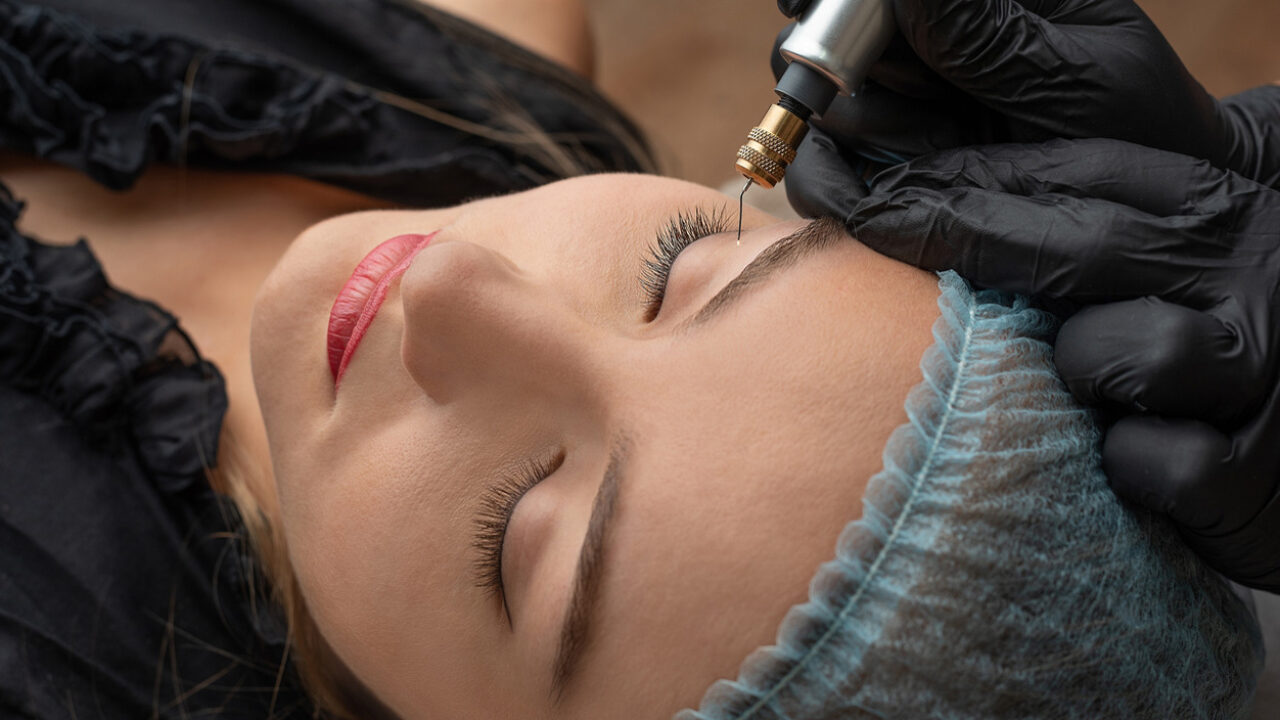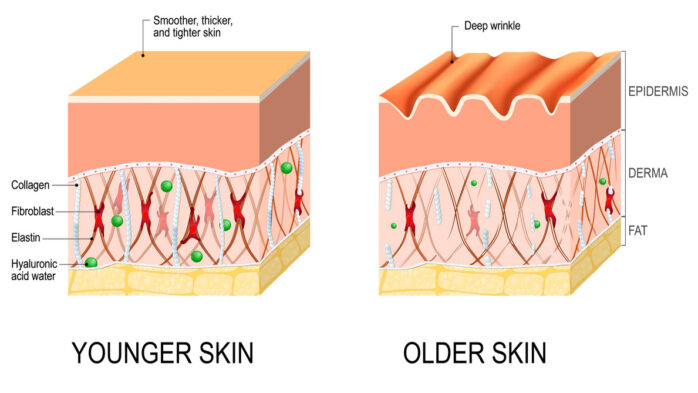
There are several skin tightening products out there from creams, laser, injections and cosmetic surgery but one that seems to be en vogue at the moment is what’s known as the fibroblast plasma treatment.
When it comes to our skin, we start to lose collagen from the age of 25 and it decreases year on year. This means that even in your mid-20s, you should be treating your skin as if it’s mature. Sorry to be the bearer of bad news. You can read more in how to prevent wrinkles guide.
The impact of this drop in collagen is that the skin starts to sag and noticeable signs of ageing start to appear. We know that anti-ageing creams aren’t miracle workers, and keeping a healthy lifestyle will at least delay things, but there must be a simpler and less abrasive way to deal with sagging skin?
This is where Fibroblast skin tightening, also known as Fibroblast Plasma treatment comes in.
FURTHER READING: How old does your skin REALLY look? Olay Skin Advisor scans your face to reveal if you’re prematurely ageing
There is a difference between fibroblast, and the fibroblast plasma/fibroblast treatment, but the two are related.
Fibroblast is the name for cells found in the connective tissues in animals – including humans. They make up the structure on which collagen and other enzymes and proteins are supported. It plays a major role in helping our skin heal and maintain firmness and tightness. You can think of it as part of the scaffolding of our skin.
Fibroblast plasma is a non-surgical scar treatment that promises to give the same results as eye- and facelift surgeries without pain and skin trauma. It can only be administered by a professional aesthetician.
FURTHER READING: Could your phone be prematurely ageing you? Blue light can make wrinkles and fine lines worse
 iStock
iStock The plasma fibroblast treatment involves placing a so-called plasma pen onto the skin. This pen releases a targeted electrical arc, or ‘plasma flash’ just above the skin, which creates small holes to the skin’s layer. Further small holes are applied to create the same grid over the targeted area. This plasma flash effect is what causes the skin fibres to tighten.
According to an article in the PMFA journal, plasma fibroblast therapy breaks down proteins in the skin, encourages tissue regeneration and causes tissue to contract and tighten.
After treatment, the small dots scab over and this healing process helps tighten and firm the skin further. These scabs fall off in about two weeks and you should be left with tighter skin. Results are instant but the skin’s elasticity and tightening will continue to improve over time, post-treatment.
While fibroblast skin tightening treatments are most popular on the face, they can also be administered on the body. However, it’s most useful around the eyes and on the neck.
You can be expected to see the full results after around three months. The plasma fibroblast treatment results will then likely last for three years.
FURTHER READING: Crow’s feet: What causes laughter lines and how to get rid of them
Fibroblast skin tightening is safe but should only be administered by a professional aesthetician. It’s also important to not pick or remove the scabs to remove scarring.
As the skin heals, it should be protected from direct sunlight and if you do need to go outside, wear SPF. In fairness, you should be wearing SPF anyway, every day.
You’ll also be given an aftercare cream to help with the healing process. If you’ve ever had microblading, the aftercare process of fibroblast skin tightening is similar.
It does cause mild swelling and redness after the first three days and if you don’t take care of the skin, or try to get it done on the cheap by someone who isn’t fully qualified can lead to scarring and skin pigmentation.

